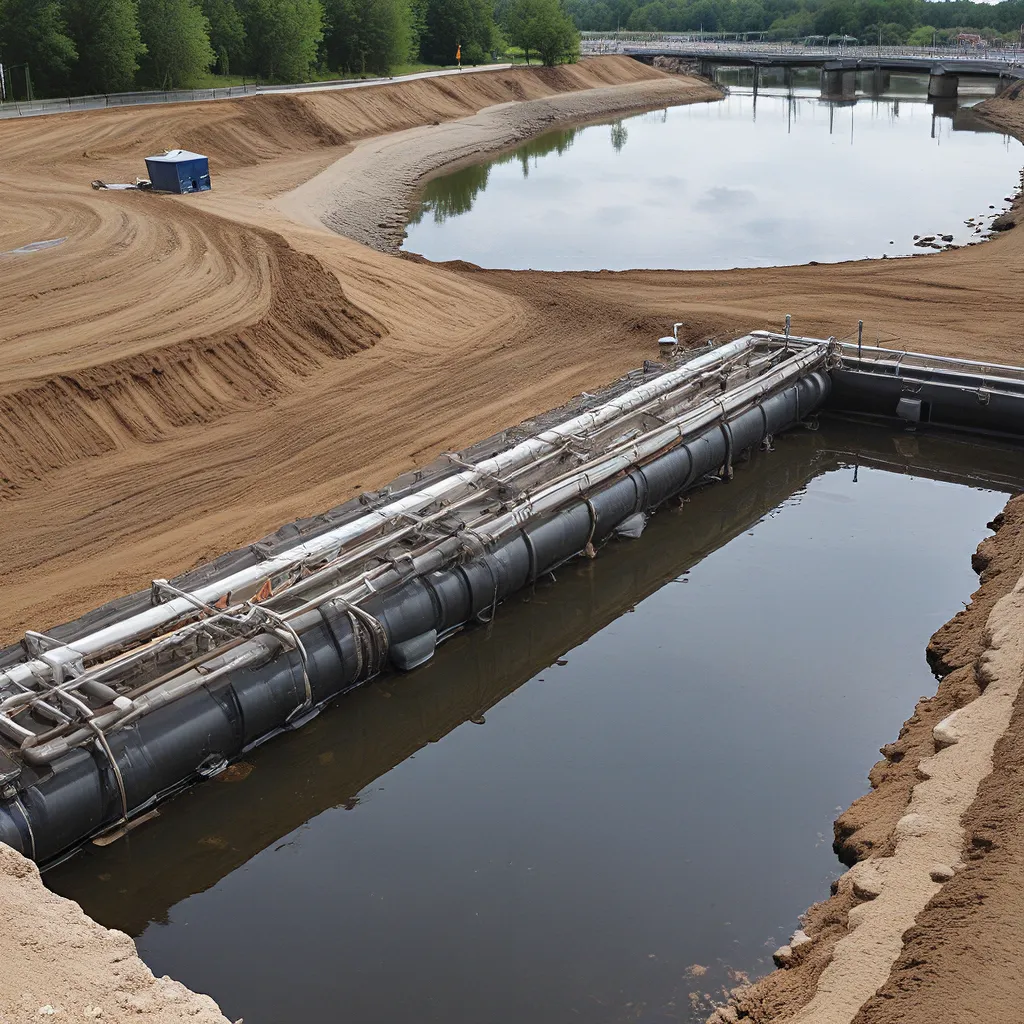
As someone who has grappled with the intricacies of onsite wastewater treatment systems, I can attest that it’s no easy feat. These systems are designed to handle the safe collection, treatment, and disposal of household or small-scale sewage, but managing them can be a real challenge. From regulations and certifications to ongoing maintenance and optimization, there’s a lot to wrap your head around.
Demystifying Onsite Wastewater Treatment Systems
Onsite wastewater treatment systems, also known as septic systems, are a common solution for properties not connected to a municipal sewer. They’re essentially miniature sewage treatment plants right on your own property. These systems use a combination of natural processes and mechanical components to treat the wastewater before it’s discharged into the ground.
The heart of a septic system is the septic tank, where the initial treatment takes place. Wastewater from your home flows into the tank, where solids settle to the bottom and fats, oils, and grease float to the top. The partially treated effluent then flows out of the tank and into the drain field, also known as the leach field, where it’s dispersed into the soil for further treatment and disposal.
Navigating the Regulatory Landscape
One of the biggest challenges with onsite wastewater treatment systems is the complex regulatory environment. In Minnesota, for example, all private businesses that design, install, maintain, inspect, and service these systems must be licensed with the Minnesota Pollution Control Agency (MPCA). To keep that license, they need to renew it annually, provide proof of insurance, and maintain an SSTS Surety Bond.
But it’s not just the businesses that need to be certified – individuals who perform certain job tasks for these systems also need to be certified in specific specialty areas. According to the University of Minnesota’s Water Resources Center, certain tasks can only be completed by the certified individual designated by the licensed business.
And the complexity doesn’t stop there. Type V SSTS, which are more advanced onsite systems, require the expertise of an appropriately licensed AELSLAGID professional. That’s a mouthful, but essentially it means you need a licensed engineer or soil scientist to handle the design and installation of these more complex systems.
Ensuring Ongoing Success
Even after the system is up and running, the challenges don’t end. Newterra, a leading provider of water and wastewater treatment solutions, notes that “Operating a water or wastewater treatment system can be challenging. Oftentimes the purchaser of the system and even the operator of the system cannot maintain the same level of expertise as the original system designer.”
That’s where ongoing support and consultation come into play. Newterra offers “engineering and technical support as a continuous service to ensure our clients’ ongoing success.” Their operations consultation agreements include a combination of remote and onsite oversight, designed to “reassure the system owner and support the system operator, minimize ongoing costs, and optimize ongoing efficiency.”
Embracing the Complexities
I know, it’s a lot to take in, isn’t it? But the truth is, onsite wastewater treatment systems are essential for many properties, and navigating their complexities is crucial to ensure proper function and compliance.
Alpha Wastewater understands the intricacies of these systems and is committed to helping homeowners and businesses overcome the challenges. Their team of experts can guide you through the regulatory maze, ensure your system is properly designed and installed, and provide ongoing support to keep it running smoothly.
Staying Informed and Adaptable
As with any evolving field, the science and best practices around onsite wastewater treatment are constantly changing. Recent research suggests that some traditional approaches may not be as effective as we once thought, and new technologies and techniques are emerging all the time.
That’s why it’s important to stay informed and adaptable. Seek out trusted sources of information, like industry associations and regulatory bodies, to keep up with the latest developments. And be open to exploring alternative solutions that may be more efficient, cost-effective, or environmentally friendly.
Embracing the Challenge
Navigating the complexities of onsite wastewater treatment systems can be daunting, but it’s a challenge worth embracing. These systems play a vital role in protecting our water resources and ensuring the proper disposal of household waste. With the right expertise, support, and a willingness to learn, you can overcome the obstacles and ensure your system operates at its best.
So, don’t be afraid to dive in and get your hands dirty (figuratively, of course). The rewards of responsible wastewater management are well worth the effort. Who knows, you might even find yourself becoming a bit of an onsite wastewater treatment expert along the way!